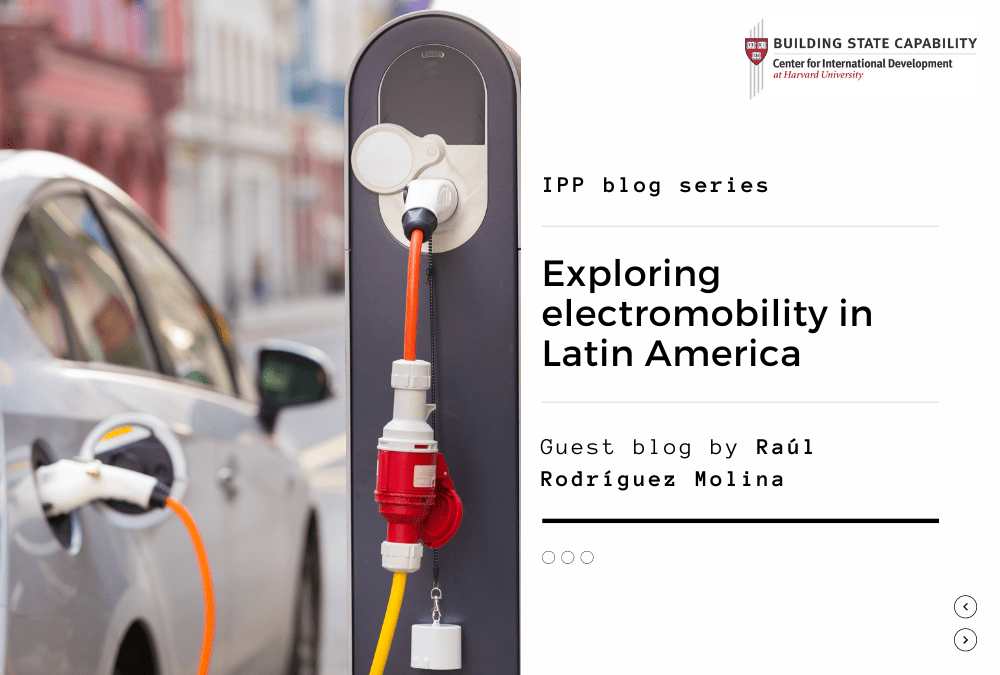Guest blog by Raúl Rodríguez Molina
I decided to enroll in the IPP program as a continuation of the Leading Economic Growth Program, which I found extremely interesting. LEG gave me the opportunity to engage in group work methodologies, like PDIA, which somehow I have seen being implemented but not formally, not following a rigorous process.
I am working as an infrastructure specialist for an international development bank, the Inter-American Development Bank. Supporting countries to design effective policies for which the Bank provides financial and technical resources is the core of my job. We (the IABD) are not policy makers, but we need to work on project derived from a sound public policy exercise. I hoped that coupling LEG and IPP in such short sequence of time would give me a conceptual refresh of the framework and basics of a good Public Policy, looking at different regions of the world and from different actor’s perspectives. One crystal clear message to me is that context matters a lot, so two similar problems cannot be tackled in the same way to get the same results. That is why it is so important to implement problem deconstruction methodologies. PDIA helps you exercise a constant evaluation and questioning process to ensure you are not just moving in the right direction, but also working with all the actors needed.
The IPP program is about putting knowledge in practice and challenging yourself to get results. Those results may not be the same you once planned, because those are dynamics. Policy problems are dynamic in the sense that the more you understand the complexity of your problem, the more dimensions, and potential results and difficulties you identify. This has been even more evident during the pandemic. I guess few of the IPP program participants have not adjusted his/her initial expectations and results.
Working during the pandemic was an extra challenge for any policy implementation process. Scarce resources, limited attention from the high-level decision makers, and of course, dialogue and interaction restrictions have occurred on a daily basis, forcing us (at least me) to fall into frustration, and to reinvent and adapt our approach and strategy.
My policy challenge started as developing an Electromobility Country Strategy in Ecuador. However, because of the above-mentioned extra difficulties during the pandemic, my challenge has evolved into keeping electromobility as a priority for the 2021 public policy strategy in at least few of the Latin American Countries. At some point, I was so frustrated because of the lack of interest or response, not just from Ecuador, but from any of the other LAC countries that I even thought about picking another policy challenge. However, I decided to do one more try. Since my clients (public agencies of Energy and Transport) were available to participate online in regional dissemination and dialogue seminars, I worked with a team organizing three of them, oriented to understand opportunities and barriers in the region for the adoptions of electromobility. We not only raised some renewed interest on the topic, but also established a regional group committee, coordinated from the Bank. We drafted an action plan and, more important, we are working on a regional facility to overcome the main barrier countries are facing. Financing. We are working with some donors and international climate change agencies, to provide countries with concessional financing, together with world class technical assistance.
Looking back my learning journey, I think it has been a very fruitful exercise that has challenged my previous approach to public policy problems. Unfortunately, during this session, we were not able to interact presently with other colleagues and professors, but on the other hand, it has required an extra mile on effort and innovation to materialize some results.
In this regard, I would also remark the importance of exchanging experiences, successes, and frustrations with other colleagues, that are probably experimenting with something similar with their own challenges.
In conclusion, I am very thankful for having taken this teamwork-journey and hope to get another ride soon.
This is a blog series written by the alumni of the Implementing Public Policy Executive Education Program at the Harvard Kennedy School. Participants successfully completed this 6-month online learning course in December 2020. These are their learning journey stories.
